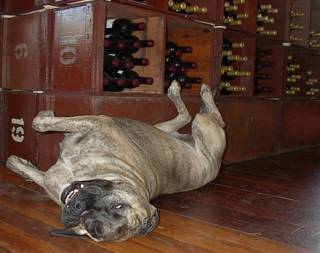AlterNet: Rights and Liberties: God On Their Side
The Religious Voice for Liberalism
"Almighty God, unto whom all hearts are open, all desires known, and from whom no secrets are hid: Cleanse the thoughts of our hearts by the inspiration of thy Holy Spirit. ..." The murmured words come from the first few pews of St. John's Episcopal Church, absorbed by the dark wood and vaulted ceiling. Founded in 1841, this proud redbrick church stands on the south side of St. Louis, blending with turn-of-the-century homes in varying states of decay or renovation. Last year, about 15 parishioners worshipped here regularly, and they ran the gamut, from a lesbian university professor to a male attorney grumpy about inclusive language. They shared only one passion: keeping St. John's open. And their loyalty caught the attention of the bishop, who funded a full-time priest in an urban experiment to see if St. John's can become self-sustaining again.
The new pastor, Rev. Teresa Mithen, cheerfully admits that she can't prove God exists. She is here because this is where she experiences God: in community. For traditionalists in the congregation, she leads an 8 a.m. Sunday service in the Elizabethan language of Rite I. At 10 a.m, she switches to Rite II in the Book of Common Prayer, supplementing with prayers in which God is as likely to be Mother as Father.
If someone asked where the religious voice for liberalism is – where are the clergy with theological grounds for supporting Kerry – Mithen would raise her hand. But she belongs to the ACLU and Americans United for the Separation of Church and State, and when she stuck a campaign bumper sticker on her car, she immediately stopped parking it near the church doors. She doesn't want to tell people how to vote, any more than she wants to become a "McChurch offering a weekly Happy Meal" just to increase numbers.
"I don't care about the perpetuation of a human institution," she says bluntly. "I care about the body of Christ. If that means the Episcopal church is eventually a totally voluntary church, fine. That's how the early church was."
Monday, January 24, 2005
AlterNet: Rights and Liberties: God On Their Side
Subscribe to:
Post Comments (Atom)

No comments:
Post a Comment